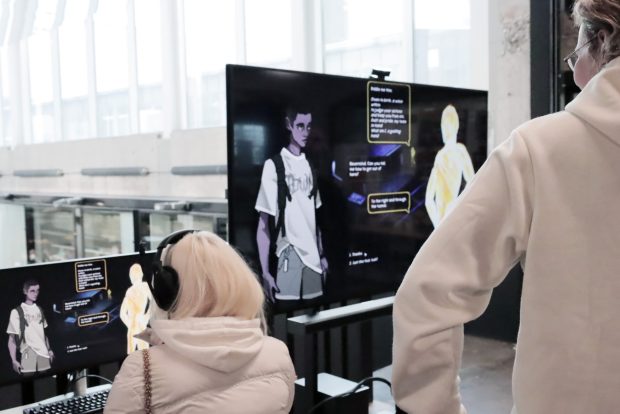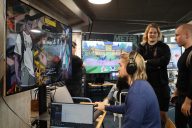In 2022, the global revenue of the video game industry took a hit, according to Newzoo. While the market is now slowly recovering, the global economic downturn is affecting the funding market and attitudes; currently, the industry is very risk-averse. Budgets are stalling, teams are smaller, and many studios lean on known IP (intellectual property) to minimize risks. Interestingly, the situation may end up benefiting creative and nimble indie studios, if they’re able to bootstrap, or manage to secure funding despite the general climate.
A lean year ahead
2024 is predicted to be a lean year for the industry. While the market is likely to keep recovering, funding is significantly harder to acquire than a couple of years ago. AAA studios – i.e. large, established ones – are unlikely to prioritize starting massive new projects, but instead tap into less risky ventures. The wave of layoffs that ran rampant in 2023 has quite literally made many studios significantly smaller, and they are likely to be working on smaller projects, too.
Old IP as safe havens
Working on games with well-known IPs is a common risk-reduction strategy for game studios, whether it means sequels for their previous games or licensing an IP from someone else. Creating an attractive new IP is often slow and expensive. Furthermore, known IPs are often easier – and cheaper – to market, since the audience already recognises them, and they may even have an eager fan base waiting.
2024 is likely to see plenty of sequels, remakes and spin-offs, and games based on movies, TV series, and so on. Additionally, existing live-service games may attempt to retain and reacquire players with nostalgia, in the footsteps of Fortnite OG.
The era of the indie?
AAA budgets are stalling, teams are smaller, and studios concentrate on their existing IPs. The wave of layoffs has left many experienced game developers unemployed, wondering about their next move, often working on their private passion projects. Simultaneously, a significant portion of players is growing unsatisfied with a flood of sequels and remasters from established studios.
Innovative, creative indie projects do not need hundreds of developers to get made, are not held down by the pressure to please shareholders.
This is not to say they have it easy – they most definitely don’t, when there’s next to no funding available, and the competition is as fierce as ever. However, those who do their market research and are able to either raise some funds or bootstrap their game into existence might have opportunities waiting for them. The players are eager to try something new; the top ten highest-grossing games of Q1/2024 on Steam can be classified as indie.
Author
Suvi Kiviniemi works as a Specialist in Metropolia’s RDI team. Their main responsibility is running LGIN (Living Game Intelligence Network), the peer support and mentoring network and incubation program for game entrepreneurship, as a part of Turbiini’s campus incubation services. Suvi is a firm believer in the power of genuine, open communities, peer learning, and mentorship. They’ve been deeply embedded in the game industry since 2013, love working in international environments, and have an entrepreneurial background.









Ei kommentteja